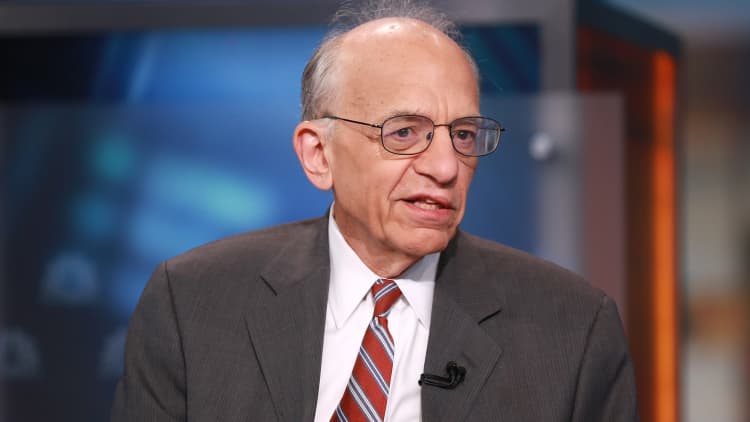
Wharton School professor Jeremy Siegel said the coronavirus outbreak would cause a one-year hit that could drag down earnings by as much as 30%, but that markets should rebound next year.
Siegel, speaking on CNBC's "Squawk on the Street" as the stock market extended its dramatic sell-off, said the odds are "overwhelmingly yes" that the economy and stocks will bounce back in the next couple of years, despite the outbreak.
"I see this as a very severe one-year shock, and then a bounce back that could be extremely rigorous," Siegel said.
The major U.S. indexes were off more than 3% on Friday morning, with the Dow Jones Industrial Average dropping more than 1,000 points at its low and every sector in the S&P 500 was at least 10% off of its record highs at point. Stocks rallied toward the end of the day, with the Nasdaq Composite closing flat.
"This could be a really tough year, but 2021, '22 onward, there's no reason not to say we're going to snap back from this. We always have," Siegel said.
Siegel said that he did not believe there would be a recession in the United States due to the outbreak, and that in the worst case-scenario earnings could fall by as much as 30%. He said this did not pose "systemic" problems like in the financial crisis.
"Long-term uncertainty is not at all increased as a result of this virus," Siegel said.
Stocks have fallen far enough that they are now at a reasonable value, and investors sitting on the sidelines should start to buy in, he said.
"If you've got some cash now, time to put it to work. Don't get nervous if it comes down another five or 10%," Siegel said.
Siegel also reiterated his call for the Federal Reserve to cut interest rates to help manage the markets during the coronavirus epidemic.
"I think the Fed should act again. Let's make some room there for easing on the financial side," Siegel said.


